White House says AstraZeneca vaccine trial pause is showing that "science is guiding the way"
From CNN's Maegan Vazquez
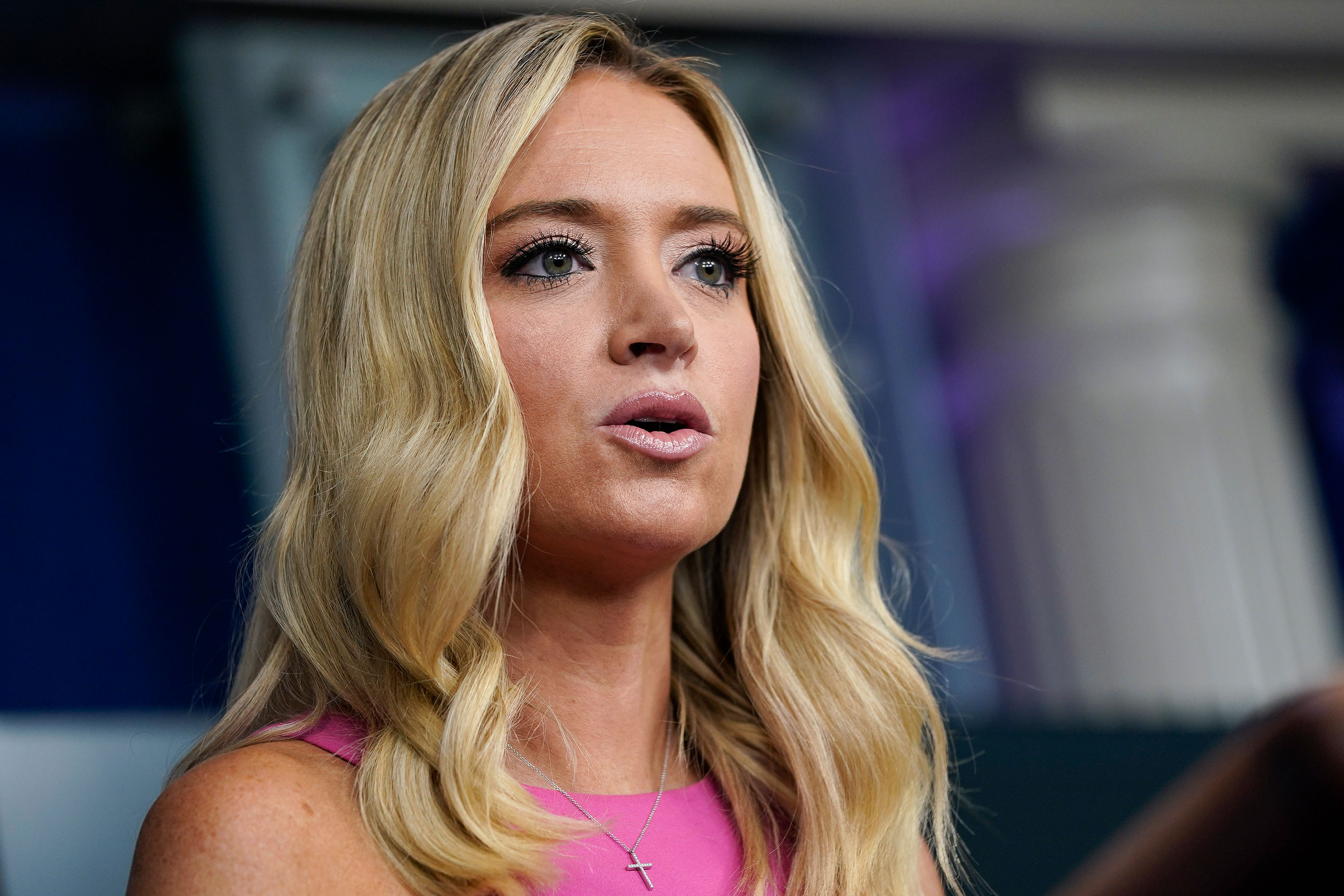 White House press secretary Kayleigh McEnany speaks during a press briefing on September 9 in Washington, DC. Drew Angerer/Getty Images
White House press secretary Kayleigh McEnany speaks during a press briefing on September 9 in Washington, DC. Drew Angerer/Getty ImagesWhite House press secretary Kayleigh McEnany said during Wednesday’s press briefing that AstraZeneca’s recent pause on a coronavirus vaccine trial showed “science is guiding the way on a vaccine.”
McEnany called their pause “a routine response when you see an adverse effect.”
McEnany also said that an end of year coronavirus vaccine is still the goal, despite the pause, and disputed that there was ever an Election Day deadline.
“Our timing is not about the election. It is about saving lives and by the end of the year has always been our goal, but of course a safe and effective vaccine, we will take it as quickly as we can get it,” she said.
Indoor dining in New York City can resume at the end of the month, governor says
New York Gov. Andrew Cuomo just announced that indoor dining in New York City can resume on Sept. 30.
Restaurants must operate at 25% capacity and follow strict restrictions, including temperature-checking guests at the door and now allowing bar service.
Here's a look at all of the restrictions, according to Cuomo:
New York's positive infection rate has remained under 1% for 33 straight days, governor says
From CNN's Sheena Jones
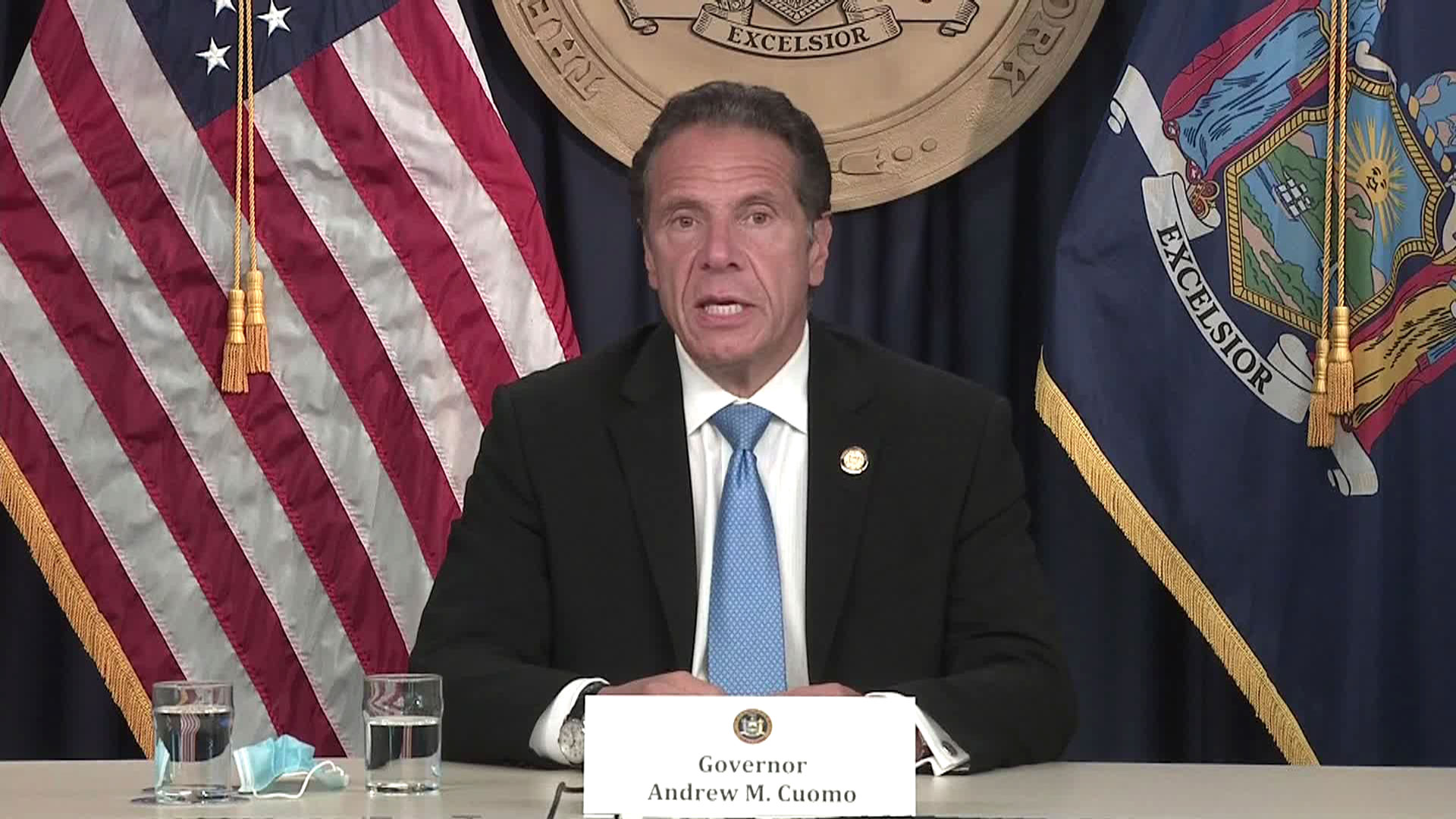 Gov. Andrew Cuomo speaks at a press conference on Wednesday, September 9. State of New York
Gov. Andrew Cuomo speaks at a press conference on Wednesday, September 9. State of New YorkNew York’s Covid-19 infection rate remains under 1% for 33 straight days, Gov. Andrew Cuomo said Wednesday.
New York’s Covid-19 infection rate is 0.91%, Cuomo said.
The State Liquor Authority has visited over 36,000 establishments and those restaurants have maintained a 99.2% compliance with capacity restrictions, the governor said.
“Rules are only as good as their compliance. And the compliance is only as good as the enforcement,” Cuomo said.
One thing to note: The numbers listed were released by the state of New York and may not line up exactly in real time with CNN’s database drawn from Johns Hopkins University and the Covid Tracking Project.
New York City mayor "hopeful" to have announcement this week on indoor dining
From CNN's Laura Dolan
New York City Mayor Bill de Blasio said he’s hopeful to have an announcement regarding indoor dining as early as this week.
He made a similar comment last week.
The mayor said there have been a lot of conversations over the last few days with Gov. Andrew Cuomo’s office and are making a lot of progress, but indoor dining has to be done safely.
The final decision on indoor dining will be made by Cuomo who said yesterday that local governments need to have an “enforcement mechanism” in place.
The mayor noted that indoor dining is a “contributing factor” to recent spikes in Europe.
“The really important piece of this is our opportunity to do more with indoor dining is directly related to how well we do on the health picture overall. If we keep fighting back the coronavirus, more and more options open up. If the coronavirus starts to re-surge you’re not going to see a lot of things, including indoor dining," he said.
De Blasio also said he is working to give some clarity to the restaurant industry “so they can have some option to keep going.”
De Blasio announced 220 new cases of coronavirus Wednesday with a positivity rate of 1.04%.
Trump wanted to play down the pandemic because he didn't "want to create a panic," according to new audio
President Trump told journalist Bob Woodward that he wanted to play down the coronavirus pandemic because he didn't want to "create a panic," according to an audio recording from Woodward's interviews.
CNN has obtained the recordings of Woodward's interviews with Trump for his new book "Rage." According to the book, Trump also knew in early February coronavirus was dangerous, highly contagious, airborne and "deadly."
Here's part of a recording from March 19:
Trump: Now it’s turning out it’s not just old people, Bob. Just today and yesterday, some startling facts came out. It’s not just old- older.
Woodward: Yeah, exactly.
Trump: Young people too, plenty of young people.
Woodward: So, give me-
Trump: So what’s going on-
Woodward: -a moment of talking to somebody, going through this with Fauci or somebody who kind of, it caused a pivot in your mind. Because it’s clear, just from what’s on the public record that you went through a pivot on this to, ‘oh my god, the gravity is almost inexplicable and unexplainable.’
Trump: Well I think, Bob, really, to be honest with you-
Woodward: Sure, I want you to be.
Trump: I wanted to- I wanted to always play it down. I still like playing it down, because I don’t want to create a panic.
WATCH:
Trump told Woodward Covid-19 could be 5 times more deadly than the flu. 20 days later he said "we don't know."
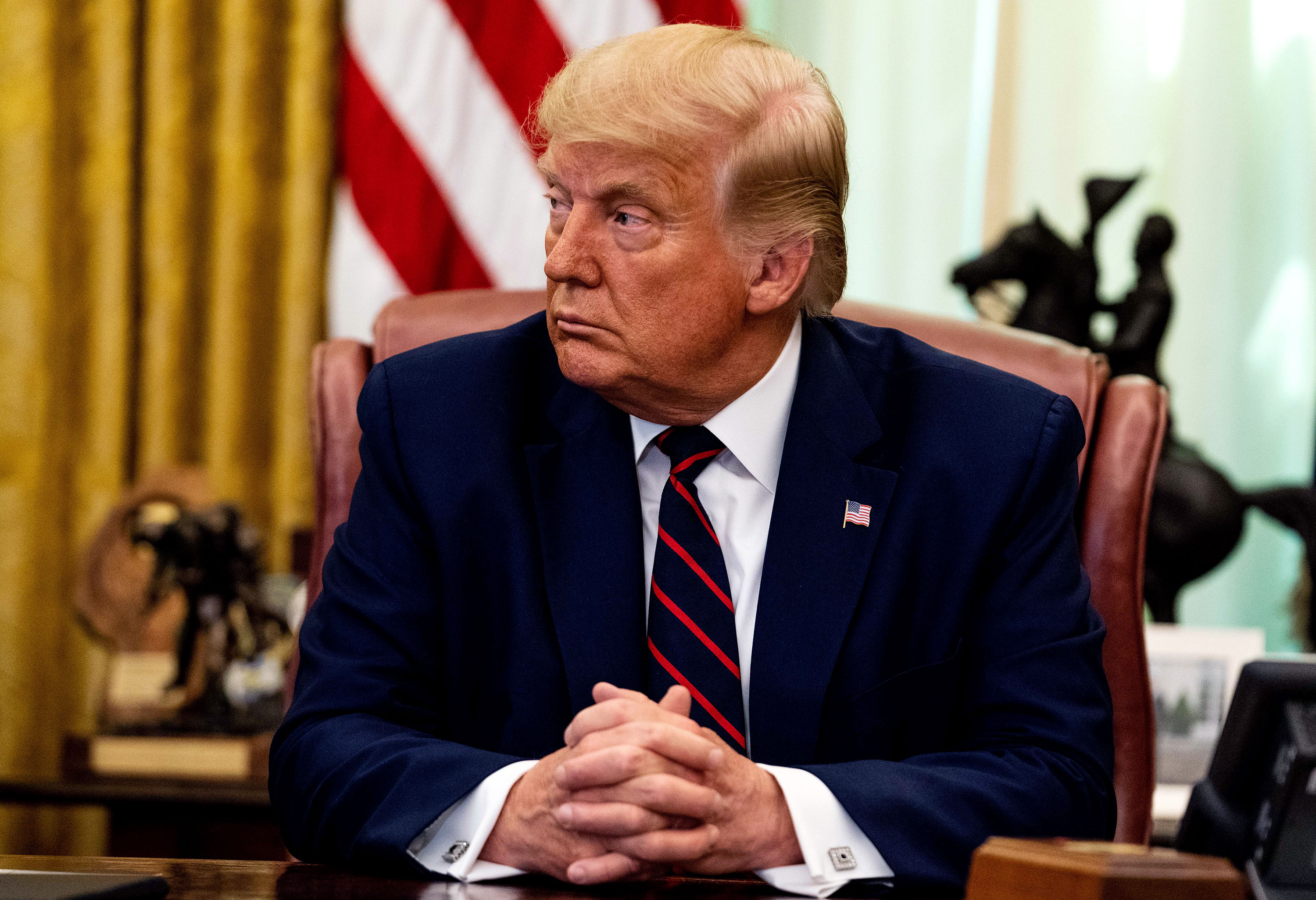 President Donald Trump attends a meeting in the Oval Office on September 4 in Washington, DC. Anna Moneymaker/Pool/Getty Images
President Donald Trump attends a meeting in the Oval Office on September 4 in Washington, DC. Anna Moneymaker/Pool/Getty ImagesAccording to audio Bob Woodward's interviews with President Trump for his new book "Rage," the President on Feb. 7 said coronavirus could be "more deadly" than strenuous flus.
Trump went on to say that coronavirus was maybe five times "more deadly" than the flu.
"This is more deadly. This is five per- you know, this is five percent versus one percent and less than one percent. You know? So, this is deadly stuff," Trump said, according to the audio.
But 20 days later, while speaking to reporters at the White House, Trump said "we don't know exactly" what the fatality rate of coronavirus is.
"The flu has a fatality ratio of about 1% This has a fatality ratio of somewhere between 2 and 3%" CNN's Sanjay Gupta said at the Feb. 27 briefing.
"We think, we don't know exactly," Trump said "The flu is much higher than that."
Trump called coronavirus "deadly stuff" in early February, according to audio recording from Bob Woodward
CNN has obtained audio recordings from some of Bob Woodward's interviews with President Trump for his new book "Rage."
According to the book, Trump knew in early February coronavirus was dangerous, highly contagious, airborne and "deadly."
Here's an exchange between Woodward and Trump on Feb. 7:
Woodward: And so, what was President Xi saying yesterday?
Trump: Oh, we were talking mostly about the virus. And I think he’s going to have it in good shape, but you know, it’s a very tricky situation. It’s –
Woodward: Indeed.
Trump: It goes through air, Bob. That’s always tougher than the touch. You know, the touch, you don’t have to touch things. Right? But the air, you just breathe the air and that’s how it’s passed. And so, that’s a very tricky one. That’s a very delicate one. It’s also more deadly than your – you know, your, even your strenuous flus. You know, people don’t realize, we lose 25,000, 30,000 people a year here. Who would ever think that, right?
Woodward: I know. It’s much forgotten.
Trump: Pretty amazing. And then I say, well, is that the same thing-
Woodward: What are you able to do for-
Trump: This is more deadly. This is five per- you know, this is five percent versus one percent and less than one percent. You know? So, this is deadly stuff.
Covid-19 deaths in Florida surpass 12,000
From CNN's Melissa Alonso
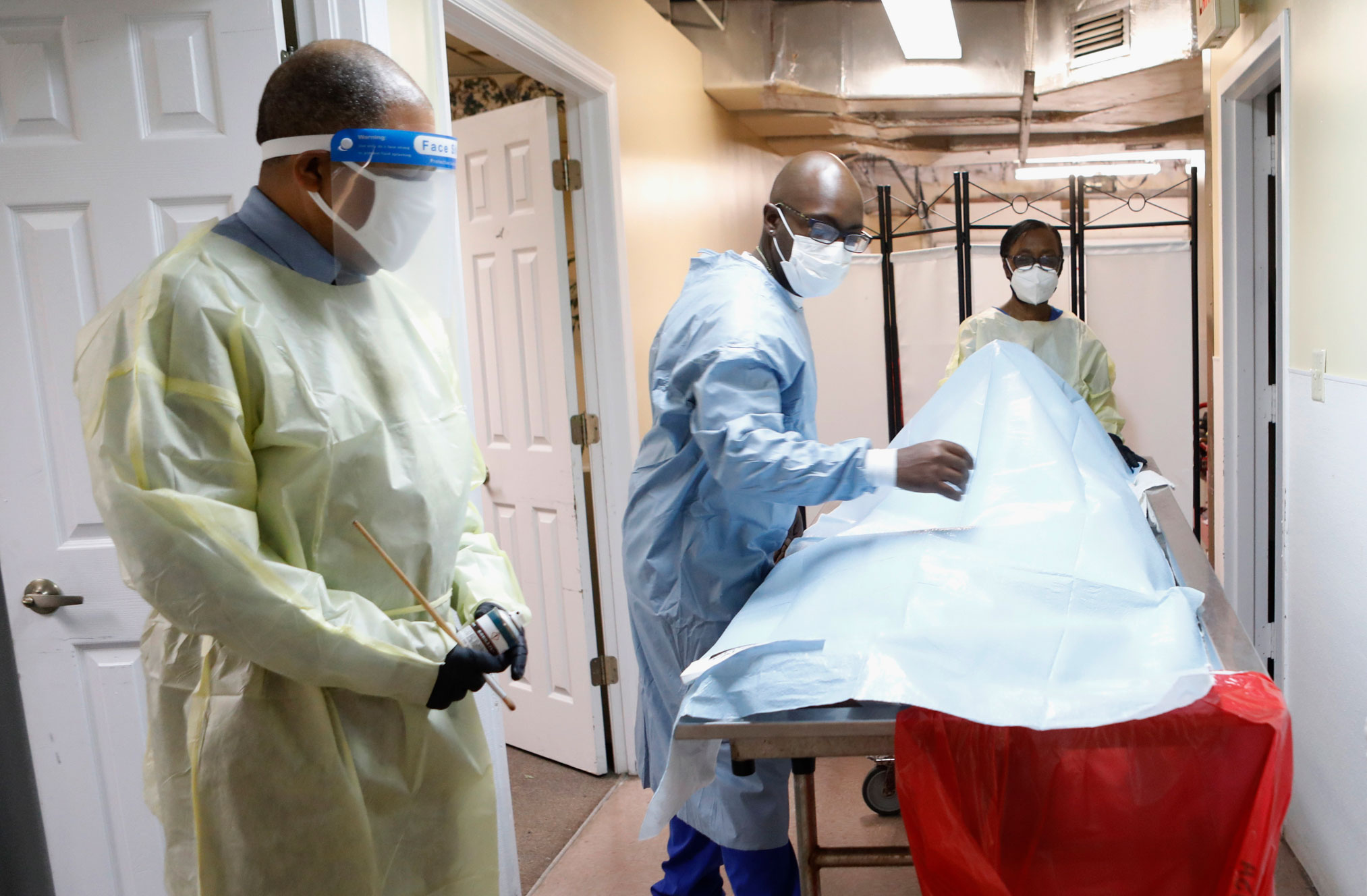 A funeral home director and mortician assistants prepare a funeral service for a man who died of Covid-19 on August 12 in Tampa, Florida. Octavio Jones/Getty Images
A funeral home director and mortician assistants prepare a funeral service for a man who died of Covid-19 on August 12 in Tampa, Florida. Octavio Jones/Getty ImagesFlorida health officials reported 200 resident fatalities on Wednesday, bringing the resident death toll to 12,115, according to the Florida Department of Health.
State health officials reported 154 non-Florida resident deaths as well, the department's data shows.
The health department reported 2,056 new cases of Covid-19, bringing the state’s total to 652,148.
There have been 40,517 Florida residents with Covid-19 hospitalized since the start of the pandemic, the department's data shows.
One thing to note: These numbers were released by Florida’s public health agency, and may not line up exactly in real time with CNN’s database drawn from Johns Hopkins University and the Covid Tracking Project.
This Black doctor volunteered for a vaccine trial after losing her father to Covid-19
From CNN's Aditi Sangal
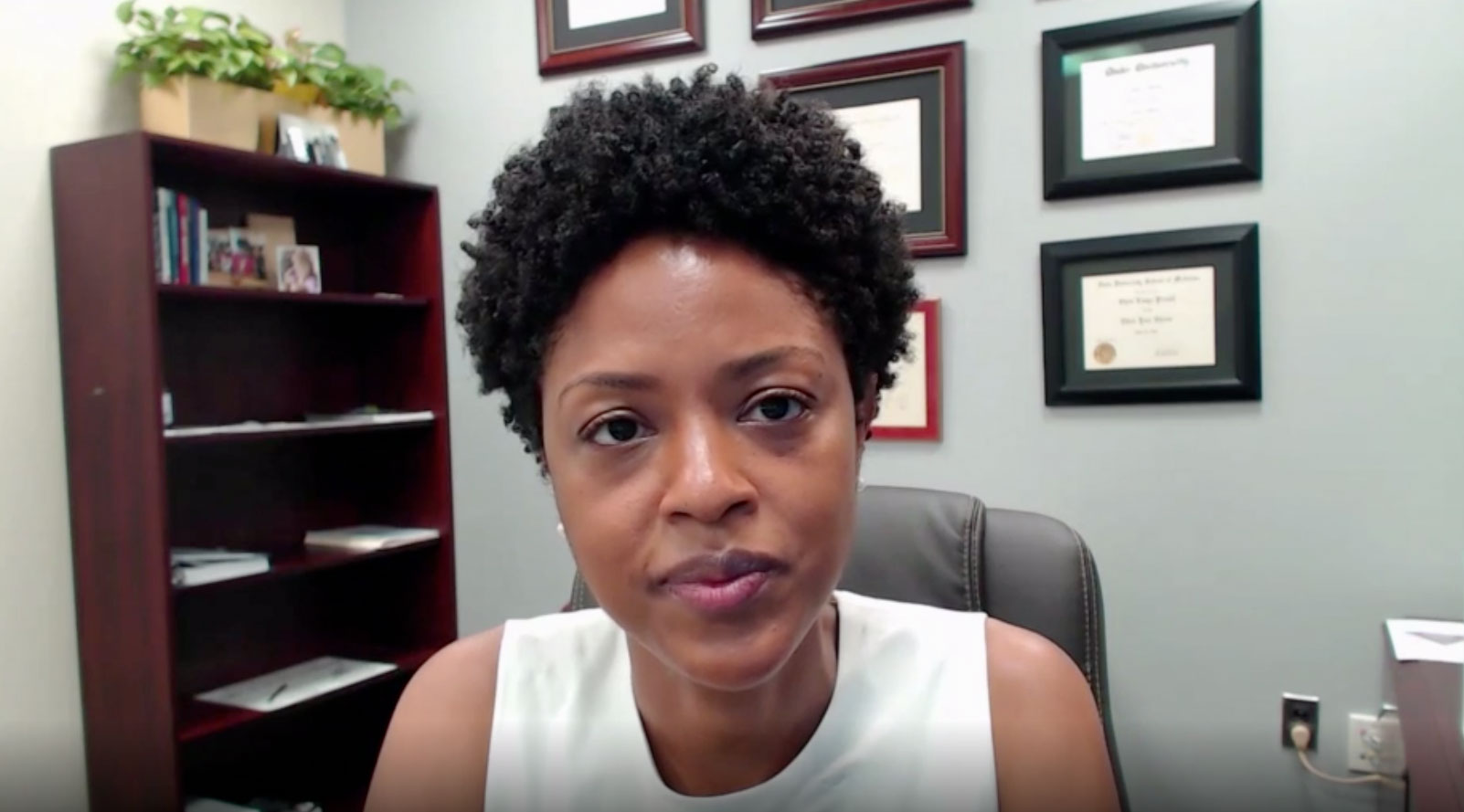 Dr. Chris Pernell speaks with CNN. CNN
Dr. Chris Pernell speaks with CNN. CNNA sense of purpose has always driven Dr. Chris Pernell, which is why she became a doctor in the first place. But when she lost her father to Covid-19 and saw her sister, a breast cancer survivor, also struggling to fend off the impact of the virus, she volunteered to be a part of the coronavirus vaccine trial.
“It's given me a sense of fire in my belly to be a part of the solution. It’s given me a deep and abiding resolve to help communities that are vulnerable and marginalized,” she said.
Reemphasizing how the pandemic is disproportionately impacting racial minorities, she said, “Black and brown communities — we've borne this disproportionate burden. And given my interest in racial equity and racial justice, this is personal. This is a personal fight for me.”
Dr. Pernell also said she understands the skepticism in the Black community given the “long history of exploitation that gives the black community a sense of pause, that broken trust.”
“But even with that being true, this opportunity is paramount,” she said. “Communities that have been disproportionately impacted should have that opportunity, should have that access to say I want to be a part of the solution.”

 5 years ago
663
5 years ago
663 

